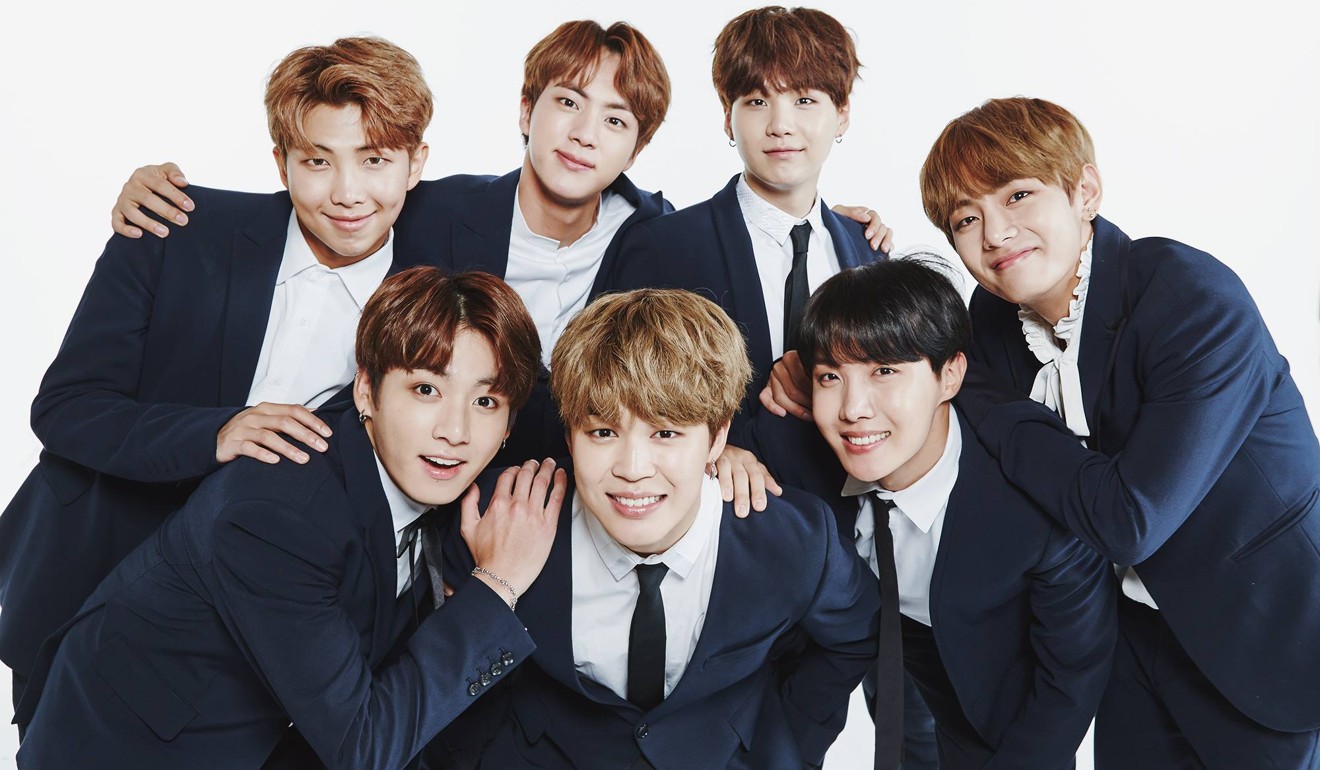
What Korean boy band BTS topping the US charts teaches us about being a game changer
Douglas Young says the elusive road to soft power success will not come by sticking to the straight and narrow, but by taking risks and keeping an eye on youth culture

Who would have thought that a Korean boy band could top the US album charts? Somehow, the Koreans have been able to overcome the cultural divide, including the language barrier. It shows what a country can achieve if it really put its mind to it despite inherent obstacles. For the past decade, Korean films and television shows have proven to be hugely popular throughout Asia, a market that was once dominated by Japan and arguably Hong Kong too.
Someone must be making a conscious effort to push culture as an agenda for penetrating foreign markets. This sort of thing does not happen by accident. Those at the top are able to materialise their vision.
Countries are measured by three forms of power – military, financial and soft. The first two have been long acknowledged, but it’s the latter kind that is suddenly becoming just as much of a talking point.

Of the three, soft power is the most difficult to measure. It is for the same reason that it has been the most elusive. Essentially, it appeals to human emotions and is abstract in form. Asian brands have long been trying to capture it, but with scant success. They recognise it to be the essential ingredient for desirability, one that can elevate a brand to another level. The term “class” aptly describes what can be achieved; it is the province of the elites.
There is only so much that functionality and technology can provide. Hitherto, the most successful Asian brands have succeeded largely on technological, functional or economic terms. There are of course exceptions, most notably from Japan. But such cases are rare considering how many brands there are in Asia.
Watch: K-pop heat triggers South Korean medical tourism boom
Until now, mainland Chinese brands have had to compete largely on price. Increasingly, technological advances have given them greater appeal too. But the ultimate factor of desirability, something that companies like Apple or Nike have in abundance, has so far eluded them.
China has gained a reputation for producing counterfeit products, many of which are comparable if not equal on many levels to the real thing. But the main reason they can only be sold at a fraction of the price of the original is because they are, at the end of the day, fakes.

To appeal to human emotions, companies need to be able to grapple with style and aesthetics as well as other subliminal factors that only clever marketing can achieve. This has been something Asians find difficult to deal with. To a certain extent, the stereotype of Asians being good at numbers is true. This is exemplified by the sheer number of students excelling in the sciences.
The ultimate desire is for the perfect surprise. To produce something no one expects to actually want
Numbers are absolute, they are indisputable. On the other hand, human emotions are intangible and subjective; while numbers can be gripped like rocks, feelings are fluid and offer no immediate traction. In a part of the world that does not place much emphasis on cultural appreciation, we are only beginning to learn how to exercise soft power. We are nowhere near confident in measuring the emotional appeal of the unknown.
Through our various institutions, we have studied how Western brands have succeeded and have made attempts at emulating their successes. But the top brands have upped their game with new breakthroughs. It seems like they are constantly changing the rules of the game and we are always playing catch-up.
Good design used to be the selling point, and we have set up schools to teach it. Now it is about something else. Consumers want new experiences and stimulation. They want to be presented with the unexpected.
The ultimate desire is for the perfect surprise. To produce something no one expects to actually want. The iPad is an example of a product that nobody thought they would want until they started using it. The key is to be at the cusp of the next breaking wave. We are so preoccupied with the latest trends that we forget to imagine what could happen next. The market is in constant motion, if we fire a projectile to target it, we must aim at an imaginary location that the market will move into (and it may not be a straight line), not at the current location of the market itself.
This is where counterculture becomes relevant.
Watch: K-pop’s ‘auntie’ fans stand proud in South Korea
We Asians often are content living in conservative societies. We see it as free from the ills of liberal societies. We see a conservative environment as a safe haven for our children. We shun the rebellious or disruptive nature of counterculture.
But counterculture is the precursor to mainstream culture. It is the next wave. If we do not courageously embrace it and try to deal with it constructively, we are at risk of missing the moment when it becomes suddenly mainstream and relevant to us. That is why conservatism is always anathema to innovation.
Countless generations have accused the youth of their day for falling standards of behaviour, but few have succeeded in changing the course of the world. Scold your children for being glued to their smartphones on the dinner table, lament the loss of privacy because of social media, be appalled by the increasing use of foul language. What is unacceptable today may soon become the “new normal”.
The jobs of tomorrow do not exist today. It is better to be ahead of the change than to follow. In a game of catch-up, we can never be leaders.
Douglas Young is co-founder of Hong Kong-lifestyle brand G.O.D